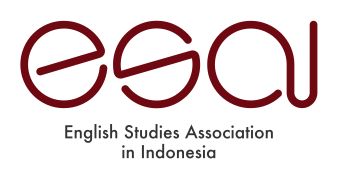Discourse Legitimation: A Description of Public Policy from the Perspective of Critical Discourse Analysis
Abstract
Discourse legitimation is one of the studies that emphasize the analysis of a public policy. In this article, public policy becomes an idea of emphasis. Public policy is established by governments to meet social goals that are always linked to public and public interests. This policy is an action formed by an individual or group of people within a social environment. In the perspective of discourse, public policy is a representation of a communication process involving government and state apparatuses. In the process of its formation, policies are established to meet the needs of stakeholders. Therefore, the ideology of a policy reflects the view of the stakeholders. Public policy is the foundation used by society, individuals, and institutions in performing actions in accordance with applicable provisions. Public policy can be viewed as a social action. Therefore, the process of analysis of a public policy must take into consideration the social and cultural aspects of society. Contextual analysis must be done in order to understand the ideology behind the formation of public policy. The formation of public policy is a form of re-formulation of a number of foundations that can be used to solve a social problem. Understanding the roles of communication participants gives a clear picture of how the policy should be built. These generated alternatives reflect the choices that communication participants can take to resolve educational issues. This article descriptively describes aspects related to public policy, such as, the background of purpose, intent, and formulation of a public policy.
Keywords: Discourse legitimation, public policy, critical discourse analysis, description
Full Text:
PDFReferences
Dunn, W. N. (2003). Public Policy Analysis: An Introduction. New Jersey: Pearson Education.
Dye, T. R. (1987). Understanding public policy. Englewood Cliffs, N.J.: Prentice-Hall.
Indonesian Publications Homepage. (4 September 2001). Mendiknas: Sistem pendidikan di RI terburuk di Asia. Retrieved from http://www.library.ohiou.edu/indopubs/2001/09/04/0124.html
European Rhetoric. Ethos, Pathos & Logos – Modes of Persuasion (Aristotle). Retrieved from: http://www.european-rhetoric.com/ethos-pathos-logos-modes-persuasion-aristotle/
Fairclough, N. (2010). Critical discourse analysis. The critical study of language. Harlow: Longman.
Government of Republic of Indonesia. (2003). Undang-undang Republik Indonesia Nomor 20 Tahun 2003 tentang Sistem Pendidikan Nasional.
Islamy, M. Irfan. (2000). Prinsip-prinsip Perumusan Kebijakan Negara. Jakarta. Sinar Grafika.
Wodak, R., & Meyer, M. (2014). Critical Discourse Analysis: History, Agenda, Theory, and Methodology. Methods of Critical Discourse Analysis, 1–33. https://doi.org/10.1016/S0376-7361(09)70018-4.
DOI: http://dx.doi.org/10.30813/jelc.v8i1.1031
Refbacks
- There are currently no refbacks.



2.jpg)



